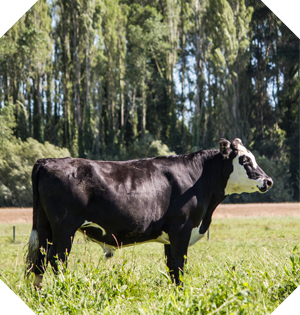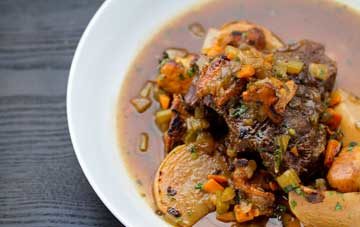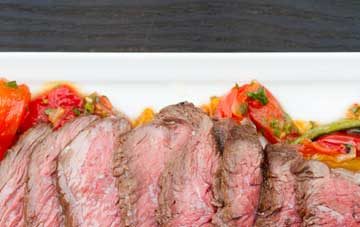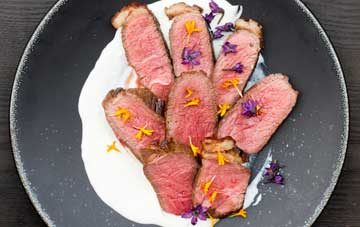
Les & Louise Keeper raise Angus, Hereford, Charolais & Limousin cattle at Coutts Island just outside Christchurch on New Zealand’s South Island. Their farm is what’s known as a finishing operation, buying other farm’s steers and raising them to processing weight (“finishing” them) on an all-grass diet.
Could you tell us about the history of your farm?
I bought the farm in 2008. It’s unique as it’s 15 minutes from the center of the city [central business district] but totally rural and private in an idyllic natural setting, on a side-road that most NZers have never been down.
Originally the farm was sheep and grain. We have completely reconditioned the farm and are now living the dream. We have water on tap by irrigation and we fatten beautiful prime steers. Because of our proximity to the city the land use is restricted ie: not allowed to dairy because of city water concerns, which suits us down to the ground. We are under the flight path, which we hope will protect us from land developers and increasing rates and demands.

How did you get into farming?
I was born on a farm and been involved with farming all of my life. At different times I ventured off farm working in executive and Board roles, but I am really happy to be back on the farm – they’ll have to take me off in a box, I’m not leaving.
What is rewarding about farming for you?
Firstly doing something with your hands that you can look back behind you and see the results. I can’t think of any greater prize than a great piece of dirt and working with livestock. The people in the agricultural service industries that we work with all share an appreciation of the land.
Could you describe the land you farm on?
We farm on the East coast of the South Island in New Zealand, on the banks of the Waimakariri River, on the outskirts of Christchurch. The soil is flat, rich, free-draining river silt. The farm is fully irrigated with crisp dry winters and hot dry summers with no humidity. It’s the ideal place to farm. We have a beautiful spring fed trout stream running through the middle of the farm and look out onto the snow-capped Southern Alps.
What are some key elements of your farming philosophy?
Most importantly we are farming the soil, the grass we grow is secondary. I boast that we grow the tastiest grass in the world, which means we really have to look after our soils. We no longer cultivate or grow winter forage crops, all In the interest of the biodiversity and health of the soil
How many animals do you run? Why do you run those livestock?
We buy in approximately 2,000 rising 2-year old beef steers per year. Our numbers peak in the spring and through the winter may get as low as 200.
We feed only grass, with any surplus grass made into silage and fed back to them. We fatten Angus, Hereford, Charolais & Limousin. These all qualify for SFF contracts and are eligible for the EQ premiums [the Reserve Program].

How does it make you feel to know that families & chefs in America are enjoying your meat?
Very proud to be a farmer. We travel to France each year and like Americans they have an appreciation for good food. It’s great to see people celebrating the best of beef.


